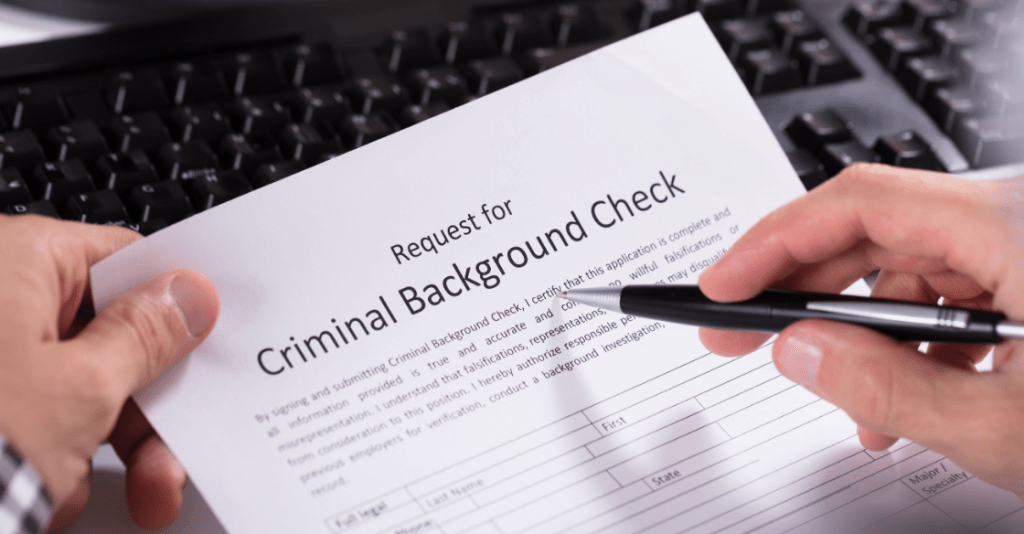Amongst the COVID-19 pandemic, businesses had to evolve to changing global conditions and new regulations quickly. Office closures affected more than your company but all of them. Closures include government offices and courthouses, most of which have been operating on closed or limited schedules. Many activities like parole hearings or legal proceedings are postponed or otherwise impacted, ultimately resulting in COVID-19 impacts on background checks. COVID-19 can make hiring difficult. Despite the economic implications of the pandemic, the United States has added millions of jobs since June of 2020. As we know, background checks are necessary for well-informed hiring decisions. Let’s look at how COVID-19 impacts background check laws by state and even results in new background check laws.
Background Check Delays
The presence of COVID-19 has led to many closures in workplaces, and courts are no exception. Many have faced temporary closures, and those that are open are taking longer to process report requests due to reduced hours or acceptance of fewer requests per day. These delays cause a problem regarding Fair Credit Reporting Act (FCRA) regulations in that companies must use the most up-to-date sources of information when conducting background checks. With that said, employers can still access most information with digital recordkeeping. However, it may be difficult for employers to get education or employment verification if the institution or business is entirely closed or does not share records with public databases.
The Result: Conditional Hiring
Of all the shifting norms, conditional hiring seems to be the biggest. Conditional hiring takes on an employee under the stipulation that you will run a full background check on the employee once they can do so. Conditional hiring may be a good option if your company is looking to fill open positions with quick immediacy but experiences background check delays. Many other companies opt for contract-to-hire positions for a similar alternative that doesn’t take on a serious commitment. Contract-to-hire places an employee in a short-term job for a set period and potentially offers a full-time opportunity at the end of the contractual period.
One rule of conditional hiring is that you cannot fire the employee for unreasonable information obtained by their background check. Any employer utilizing this option will need to use the FCRA adverse action process if the background check determines a termination is necessary post-hiring. This process includes writing a pre-adverse action letter, allowing employees a chance to explain negative marks, and further written and legal considerations.
Background Check Laws by State: Ban the Box Law
For quite some time, felons and those with criminal backgrounds have been penalized for their record. During the pandemic, many states implemented a Ban the Box law to protect their rehabilitation efforts. Ban the Box laws prevent employers from asking about criminal history during the beginning stages of a hiring process, if at all. Depending on individual state laws, this may mean asking for criminal history after an initial job interview or waiting until the conditional job offer. Amid the pandemic, several states have expanded these laws to improve the economy and give everyone a fair chance at keeping themselves afloat monetarily.
Even without Ban the Box, it can best to offer the job before asking about a criminal background. Moreover, employers often can’t use criminal histories to affect promotional decisions either. Doing so helps abide by fair chance hiring laws, and you don’t want to break those. With delays in background checks, it may be tempting to ask about criminal background. But it’s certainly better to be legally compliant.
Modified Pre-Employment Screening
We have spoken before about COVID-19 having affected background checks. Background checks now include:
- Job and employment history.
- Credit and financial reports.
- Housing and landlord discrepancies.
- Personal and professional references.
All of these things are significantly impacted by a pandemic, especially employment history. Background checks, for this reason, were already being analyzed with this mindfulness. As the pandemic has continued, many companies have implemented a temporary relaxation of their background check policy completely. There are delayed background checks now, and some businesses have amended their policy due to COVID.
The Implications of Changing & New Background Check Laws
Businesses much abide by the law. So companies have no choice but to be flexible in their hiring processes as legalities evolve alongside the pandemic. Because of this, we may ultimately see more fair hiring practices and equal opportunities. Of course, state and local governments will not legally mandate all the changes.
Logistics have changed how companies do background checks, many are opting to suspend them as we know them for now. However, don’t do this without care! Companies should be wary in deciding what to abandon. Any policy changes could render previously-obtained information a non-necessity for background screenings going forward. Employers who suspend certain checks risk labeling them as not job-related. Reinstating a policy may break discrimination laws, especially if there have not been any issues. If necessary, be aware of background check mistakes to avoids and gain legal counsel before any drastic changes.
Handling New Background Check Laws With DataCheck
Despite the pandemic, DataCheck has remained fully functional to best assist companies just like you in handling new background check laws. All of our background check services are still available. We’re working in constant communication with our vendor partners to minimize the pandemic’s effects and mitigate any impacts on your business despite changing background check laws by state. We’re proud to offer a comprehensive suite of employment screening solutions customizable to your company’s needs.
DataCheck has helped employers make educated, informed hiring decisions for over 20 years — and for years to come! Get in touch to see how we can help adjust your screening policy to better fit COVID-19, abide by Ban the Box laws, or simply offer a top-quality, full-service background check at an exceptional rate.


